PhD, MPhil, MRes English
ApplyResearch opportunities
We offer MRes, MPhil and PhD degrees in English.
You can study an MPhil or an MRes over the course of one year or a PhD over three years.
You can study whichever option you'd like in any of our five research areas:
- Gender Studies
- Literary Linguistics
- Literature, Culture & Place
- Creative Writing
- Renaissance Studies

The Place of Useful Learning
UK University of the Year
Daily Mail University of the Year Awards 2026
Scottish University of the Year
The Sunday Times' Good University Guide 2026

Creative writing
The PhD in Creative Writing is an opportunity to work on an extended project (up to 80,000 words) under the supervision of a successful, published author.
Find out more about the PhD in Creative Writing.
English language & literature
Postgraduates in English language and literature will be supervised by researchers with international reputations in a range of fields, from the Renaissance period to the present day.
Our areas of expertise include:
Here is the alphabetized list:
- 20th & 21st century literature & culture
- Alasdair Gray Studies
- American literature & culture
- animal studies
- critical disability studies
- critical medical humanities
- experimental literature
- gender & sexuality
- heritage
- life writing
- linguistic & cognitive literary studies
- monster theory
- periodical/newspaper culture
- poetry & poetics
- postcolonial literature & theory
- queer theory
- Renaissance
- Scottish studies
- Victorian, Edwardian & Neo-Victorian
Recent and current PhD projects supervised by English Studies include the representation of animals in the illustrated police news; the impact of the discovery of neanderthals on literary culture in the late nineteenth century; the concept of the will in renaissance writing; Alexander Trocchi; Nathaniel Hawthorne; a cognitive approach to spatial patterning in novels; metaphors and L2 learners of English.
Our research & expertise
Postgraduate students at Strathclyde are part of the Scottish Graduate School in Arts and Humanities and have been involved in organising postgraduate conferences for the Graduate School. There have been postgraduate symposia on interdisciplinarity and animal studies, and a postgraduate creative writing workshop in animal studies.
Colleagues in English are active in researching writing about the experience of travel, from tourism to migration and refuge. This work is part of a critical engagement with how we can revise ideas about heritage in transnational contexts that challenge ‘authentic’ connections to place or memory. Churnjeet Mahn is currently working on monograph analysing queer travel and tourism in contemporary postcolonial writing and is leading a strand of a major AHRC grant on lost memories and experiences of Partition in Punjab.
We maintain a strong research base in Scottish Studies, with particular interests in popular culture and the recovery of lost Scottish writing, and also contemporary Scottish literature, for example Alasdair Gray Studies. Recent works that have come out of this research include Poets of the People’s Journal, Dr Eleanor Bell’s The Scottish Sixties: Reading, Rebellion, Revolution? And The International Writers’ Conference Revisited: Edinburgh, 1962, while Dr Rodge Glass’s research on Alasdair Gray over the last 15 years includes his biography of Gray, first published in 2008. Maria Sledmere’s additional work as director of the Glasgow-born SPAM Press continually informs research around small press publishing, popular culture, the post-internet and innovative poetry and poetics in Scotland and beyond. Their recent funded work in collaboration with Dear Green Bothy, Project Somnolence, offers practice-led approaches to sleep inequality in the context of environmental issues.
We are also active in Critical Medical Humanities research, especially where it intersects with the study of gender, race and sexuality. Recent and current projects in this field include Dr Sophie Jones’s book project on the politics of reproduction in US literature and film of the 'long 1960s', and ongoing research into the medicalisation of attention and post-1945 American literature. Dr Donna McCormack has recently completed an AHRC leadership fellowship on organ transplantation in contemporary literature and film. The monograph emerging from this project explores queercrip embodiments and belongings as forms of anticolonialism. This research brings together queer, crip, postcolonial and critical race theories to address questions around the meaning of life and death, including who controls these categories and lived experiences, and what other, less dominant, knowledges may teach us about these uncertain definitions.
Projects
We have hosted a number of funded doctoral projects, including the AHRC-funded Adult Autistic Readers of Literary Fictional Narrative: A Cognitive Aesthetics Approach; Poetry, Song and Community in the Industrial City: Victorian Dundee; Industrial Workers as Readers: Libraries, Reading Rooms and the Industrial Workplace in the Long Nineteenth Century; The People’s Friend? Recovering Scottish Popular Magazine Culture; Towers and Schemes in Revolt: Community Literature and Cultural Activism in Glasgow 1960 – 1990; and 'City Recorder': Alasdair Gray’s Practice & The 'Disappearing City' of Glasgow.
Colleagues in English and Creative Writing work closely together and also with colleagues in Journalism, Media and Communication, History, and Languages, all of whom work within the Department of Humanities. Students are co-supervised across different subject areas within the school, as well as across the University and with other Scottish universities.
Fees & funding
All fees quoted are per academic year unless otherwise stated.
Entrants may be subject to a small fee during the writing up period.
Fees may be subject to updates to maintain accuracy. Tuition fees will be notified in your offer letter.
All fees are in £ sterling, unless otherwise stated, and may be subject to revision.
Annual revision of fees
Students on programmes of study of more than one year (or studying standalone modules) should be aware that the majority of fees will increase annually.
The University will take a range of factors into account, including, but not limited to, UK inflation, changes in delivery costs and changes in Scottish and/or UK Government funding. Changes in fees will be published on the University website in October each year for the following year of study and any annual increase will be capped at a maximum of 10% per year. This cap will apply to fees from 2026/27 onwards, which will not increase by more than 10% from the previous year for continuing students.
| Scotland | £4,786 |
|---|---|
| England, Wales & Northern Ireland | £4,786 |
| Republic of Ireland |
If you are an Irish citizen and have been ordinary resident in the Republic of Ireland for the three years prior to the relevant date, and will be coming to Scotland for Educational purposes only, you will meet the criteria of England, Wales & Northern Ireland fee status. For more information and advice on tuition fee status, you can visit the UKCISA - International student advice and guidance - Scotland: fee status webpage. Find out more about the University of Strathclyde's fee assessments process. |
| International | £18,050 |
| Funding | Our postgraduate students are eligible to apply for doctoral studentships from the Arts and Humanities Research Council, the Scottish Graduate School for the Arts and Humanities and the Carnegie Trust for the Universities of Scotland. Take a look at our funding your postgraduate research web page for funding information. You can also view our scholarships search for further funding opportunities. |
| Postgraduate research opportunities | Search for all funded and non-funded postgraduate research opportunities. |
| Additional costs | International students may have associated visa and immigration costs. Please see student visa guidance for more information.
|
Please note: the fees shown are annual and may be subject to an increase each year. Find out more about fees.
Find out what our students think
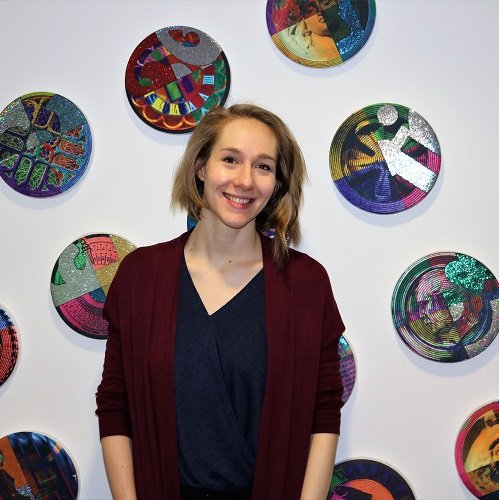
Katie Ailes
Probably the best aspect of my experience at Strathclyde has been the availability and supportiveness of the faculty. My supervisor is always prompt and thorough with providing feedback on my work.
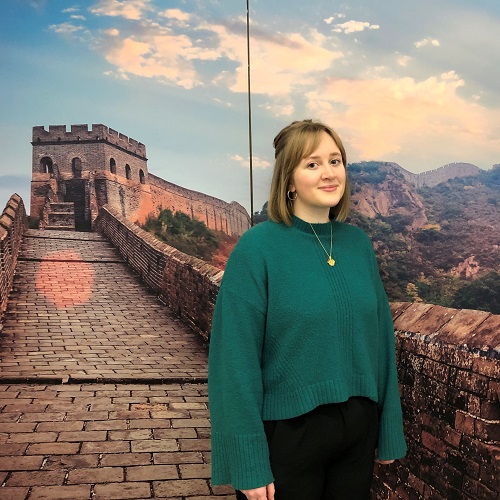
Louise Logan
I’ve really enjoyed my time at Strathclyde. The staff in my department are interesting and supportive people, and I’ve made many good friends through the graduate school, which I’ve always found to be a welcoming environment to work in.
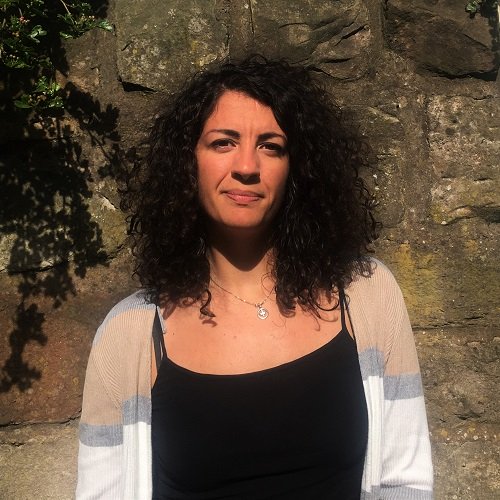
Mila Daskalova
The support I received as early as the application process convinced me that Strathclyde was a great place to be... I feel like I belong to a community, which is very important to me.
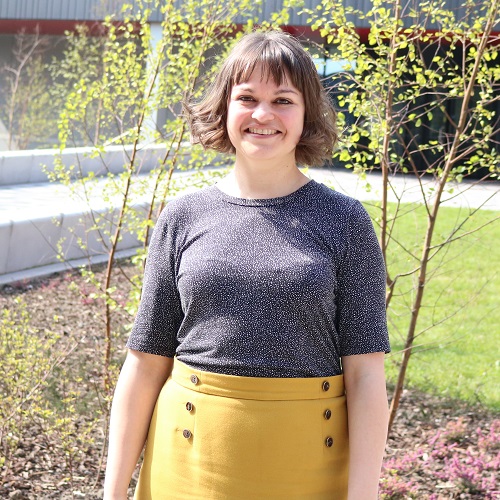
Maja Brandt Andreasen
I find my supervisor extremely supportive – both in terms of giving me useful feedback on my PhD thesis but also in terms of functioning as a mentor when I try to navigate the possibilities of an academic career.

Anke J. Kleim
Unlike most students at Strathclyde, I am studying part-time AND from overseas. Doing a part-time PhD was an excellent way to do so, something that is not offered by many universities. It was thus one of the main reasons why I enrolled at Strathclyde.
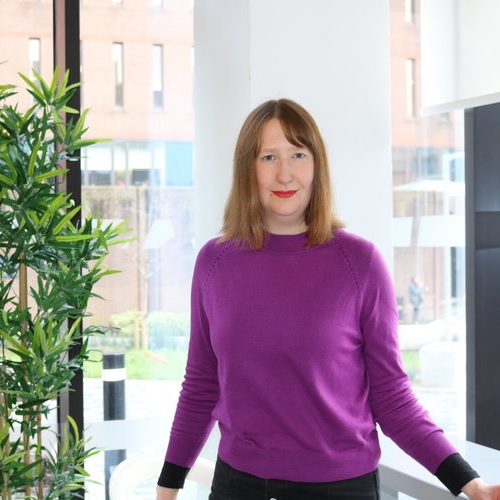
Mara Dougall
I love how flexible practice-based research is. I've very much been allowed to work at my own pace and direct my own research activities, which have included things like community engagement.
Our research
Our research in English language and literature covers all periods from the Renaissance to the present day. Colleagues in English, Creative Writing and in Journalism work closely together and also with colleagues in History and Languages, all of whom work within the Department of Humanities.

Supervisors
English
| Name | Areas of expertise |
|---|---|
| Elspeth Jajdelska |
|
| Erica Fudge |
|
| Sophie Jones |
|
| Churnjeet Mahn |
|
| Eleanor Bell |
|
| Sarah Edwards |
|
| Sarah Bernstein |
|
| Donna McCormack |
|
|
Katharine Mitchell, Senior Lecturer in Italian Culture, Media and Gender |
|
| Steven Veerapen |
|
|
|
*Cross-listed with Spanish |
|
| Maria Sledmere |
|
|
|
|
Creative Writing
The Creative Writing team at Strathclyde have a broad range of interests and specialisms. Please find here, a brief outline of some of the areas in which our staff welcome PhD applications. For more information, please contact staff directly.
| Name | Areas of expertise |
|---|---|
|
Sarah Bernstein
|
I would welcome Creative Writing PhD proposals in the following areas:
|
|
Andrew Meehan |
I’m an Irish/Scottish novelist who has also had a substantial career in feature film script development, hence my research watchtower faces in a few directions. Overall, I’m very interested in how narrative works, and how we put our stories together. The age-old tension between form and formula. I would particularly welcome PhD proposals in the following areas:
|
| Rodge Glass r.glass@strath.ac.uk |
I am a novelist, short story writer, graphic novelist and biographer, with an interest and experience in supervising to completion works of fiction, non-fiction and creative-critical investigation. My own PhD was a creative biography of the Glaswegian visual and literary artist Alasdair Gray, and I retain an interest in creative non-fiction and especially in ways of telling the stories of literary lives. I would particularly welcome PhD proposals in the following areas:
|
| Maria Sledmere |
I am a poet-theorist whose work oscillates between the environmental and energy humanities, with a bias for small press poetries, nonfiction, innovative and hybrid writing. I am interested in how poetry 'thinks' issues such as ecological crisis, technological innovation, infrastructure, health and well-being inequalities and just transition. I am keen to supervise work which explores other facets of culture to be found in visual art, music and the digital world; work which is practice-led and attuned to the relationship between ethics and aesthetics.
|
| Jessica Widner |
I joined Strathclyde in 2024 as a Lecturer in English & Creative Writing, having previously held an Early Career Fellowship in Creative Writing at the University of Edinburgh. My research focuses on modern and contemporary women's writing, particularly as it involves the body and the senses of touch and taste. I am currently researching appetite and food as political resistance in contemporary Korean women's writing. I have a PhD in Literature and an MSc in Creative Writing from the University of Edinburgh. In addition to my critical work, I am a fiction writer; my debut novel Interiors was published by the87press in 2022, and my short fiction has appeared in Gutter, Extra Teeth and The Cardiff Review. In my creative work I am interested in experimenting across form and genre, particularly in bridging the critical and the creative.
|
Support & development
The Graduate School
The Graduate School is a friendly and supportive study environment for research students studying subjects within Humanities & Social Sciences.
Our staff will support you through your studies and you'll become part of a community of students who get involved with our workshops, seminars and competitions.
Postgraduate Certificate in Researcher Professional Development (PgCert RPD)
Our PgCert RPD programme aims to ensure you get the most out of your current research activities at Strathclyde and helps you prepare for your future career as a researcher.
We'll help you recognise and develop your transferrable skills that'll have a positive impact on your research, now and in the future.
Careers
The University Careers Service can help you with everything from writing your CV to interview preparation. Take a look at our careers service pages to get more information.
Student support
From financial advice to our IT facilities, we have a wide range of support for all students here at Strathclyde. Get all the information you need at Strathlife.
International students
We've a thriving international community with students coming here to study from over 140 countries across the world. Find out all you need to know about studying in Glasgow at Strathclyde and hear from students about their experiences.

Postgraduate research at the Strathclyde Doctoral School
The Strathclyde Doctoral School offers a vibrant, student-centred research and training environment, dedicated to supporting both current and future research talent.
Bringing together all four of our faculties, it is committed to enhancing the student experience, increasing research outputs and opportunities, and ensuring that training is delivered at the highest standard.
As a postgraduate researcher, you will automatically become a member of the Strathclyde Doctoral School.

Apply
Entry requirements
Normally, a first-class or upper second-class Honours degree, or overseas equivalent.
The application
During the application you'll be asked for the following:
- your full contact details
- transcripts and certificates of all degrees
- proof of English language proficiency if English isn’t your first language. For postgraduate studies, we require a minimum overall IELTS score of 6.5 or equivalent (no individual test score below 5.5, the test must be taken within two years of the programme start date)
- two references, one of which must be academic
- funding or scholarship information
- research proposal of 1,500-2,000 words in length, detailing the subject area & topic to be investigated
By filling these details out as fully as possible, you'll avoid any delay to your application being processed by the University.
Supervisors
You'll need to identify your research supervisor before you finalise your application, preferably as soon as possible.
When you've identified a potential supervisor, based on how well your research interests match theirs, drop them an email to introduce yourself. In the email, make sure you attach a draft of your research proposal along with a copy of your CV.
Don't worry about how rough your research proposal may be at this stage – you'll have help from the Department of Humanities to refine it. If your chosen supervisor is available to work with you, they'll confirm this and nominate a potential second supervisor. As soon as a second supervisor is confirmed, an offer of study will be sent to you through Pegasus, our online application system.
If you accept our offer, you'll receive a full offer in writing via the email address you provide.
Accepting an offer
Once you've accepted our offer, we'll need you to fulfil any academic, administrative or financial conditions that we ask.
UK or EU students
If you're applying as a UK or EU student, you'll then be issued with your registration documentation.
MRes applications
Closing date for applications: Friday 24 April 2026
- Stage 1: applicants must apply online and have uploaded the required documentation, no later than Friday 24 April 2026 deadline. Late applications will not be accepted
- Stage 2: applicants who have been successful in the initial selection from Stage 1, will be called for interview by mid-May 2026
Start date: Oct 2025 - Sep 2026
English
Start date: Oct 2025 - Sep 2026
English
Start date: Oct 2025 - Sep 2026
English
Start date: Oct 2025 - Sep 2026
English
Start date: Oct 2025 - Sep 2026
English (partner organisation)
Start date: Oct 2025 - Sep 2026
English (partner organisation)
Start date: Oct 2026 - Sep 2027
English
Start date: Oct 2026 - Sep 2027
English
Start date: Oct 2026 - Sep 2027
English
Start date: Oct 2026 - Sep 2027
English
Start date: Sep 2026
English
Start date: Sep 2026
English
Start date: Oct 2026 - Sep 2027
English (partner organisation)
Start date: Oct 2026 - Sep 2027
English (partner organisation)
Start date: Sep 2027
English
Start date: Sep 2027
English
Start date: Oct 2027 - Sep 2028
English
Start date: Oct 2027 - Sep 2028
English
Start date: Oct 2027 - Sep 2028
English
Start date: Oct 2027 - Sep 2028
English
Start date: Oct 2027 - Sep 2028
English (partner organisation)
Start date: Oct 2027 - Sep 2028
English (partner organisation)
Contact us
Admissions
Graduate School
Telephone: +44 (0)141 444 8400
Email: hass-pgr-applications@strath.ac.uk
Lord Hope Building Level 1 - LH128
141 St. James Road
Glasgow
G4 0LT
Fees & funding
All fees quoted are per academic year unless otherwise stated.
Entrants may be subject to a small fee during the writing up period.
Fees may be subject to updates to maintain accuracy. Tuition fees will be notified in your offer letter.
All fees are in £ sterling, unless otherwise stated, and may be subject to revision.
Annual revision of fees
Students on programmes of study of more than one year (or studying standalone modules) should be aware that the majority of fees will increase annually.
The University will take a range of factors into account, including, but not limited to, UK inflation, changes in delivery costs and changes in Scottish and/or UK Government funding. Changes in fees will be published on the University website in October each year for the following year of study and any annual increase will be capped at a maximum of 10% per year. This cap will apply to fees from 2026/27 onwards, which will not increase by more than 10% from the previous year for continuing students.
| Scotland | £5,006 |
|---|---|
| England, Wales & Northern Ireland | £5,006 |
| Republic of Ireland |
If you are an Irish citizen and have been ordinary resident in the Republic of Ireland for the three years prior to the relevant date, and will be coming to Scotland for Educational purposes only, you will meet the criteria of England, Wales & Northern Ireland fee status. For more information and advice on tuition fee status, you can visit the UKCISA - International student advice and guidance - Scotland: fee status webpage. Find out more about the University of Strathclyde's fee assessments process. |
| International | £19,850 |
| Funding | Our postgraduate students are eligible to apply for doctoral studentships from the Arts and Humanities Research Council, the Scottish Graduate School for the Arts and Humanities and the Carnegie Trust for the Universities of Scotland. Take a look at our funding your postgraduate research web page for funding information. You can also view our scholarships search for further funding opportunities. |
| Postgraduate research opportunities | Search for all funded and non-funded postgraduate research opportunities. |
| Additional costs | International students may have associated visa and immigration costs. Please see student visa guidance for more information.
|
Please note: the fees shown are annual and may be subject to an increase each year. Find out more about fees.

